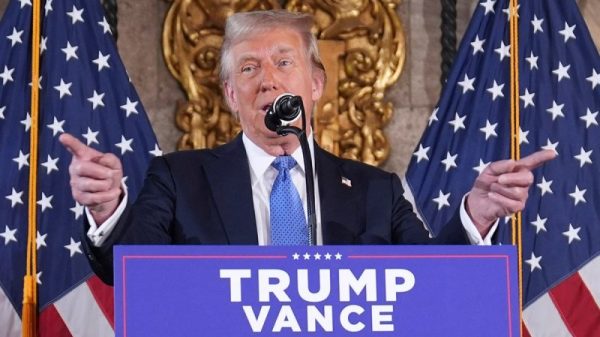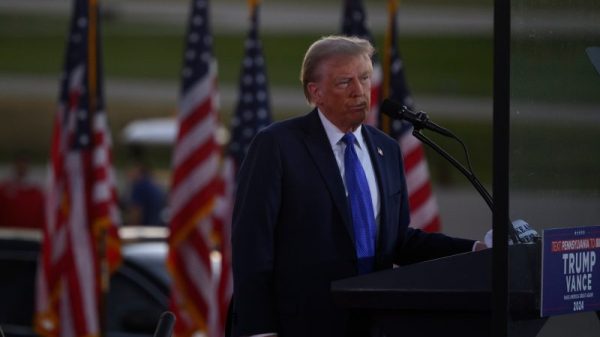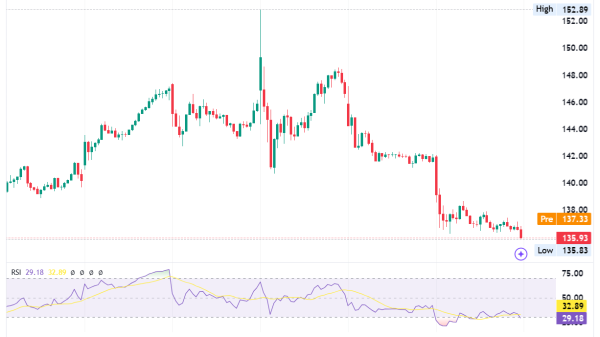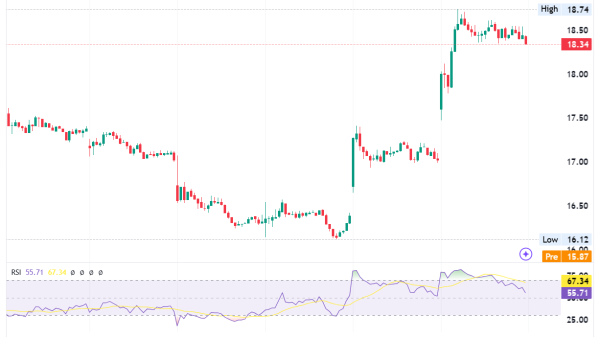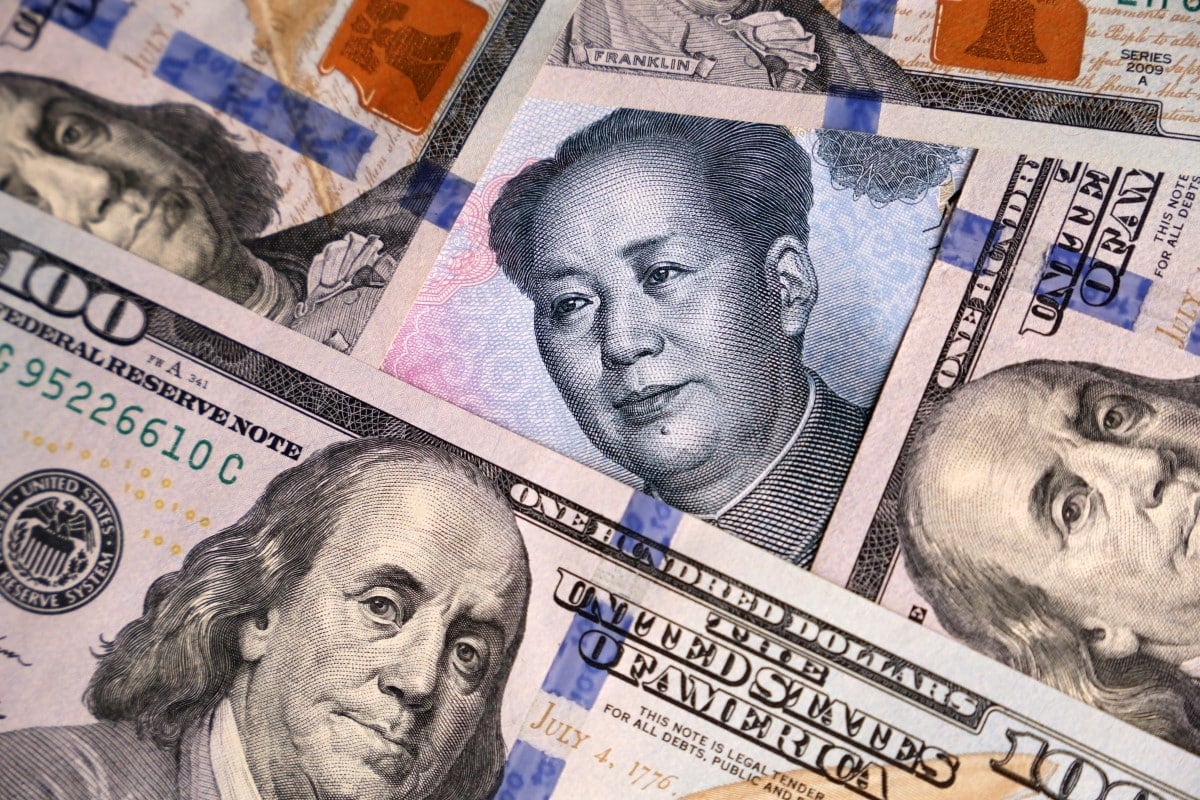China’s Yuan Surges to 3-Month High Against USD
China’s economic landscape is witnessing a significant shift as its currency, the yuan, soars to a remarkable three-month high against the US dollar. The People’s Bank of China (PBOC) has played a pivotal role in this surge, guiding the yuan higher and encouraging exporters to convert their dollar receipts into the local currency. This strategic move reflects the strength of the Chinese economy and suggests a potentially impactful influence on global currency dynamics. We delve into the factors driving this surge, its implications, and what it means for the international market.
The PBOC’s Power Play
Prior to the market opening, the PBOC set the midpoint rate at 7.1612 per dollar, marking a robust 116 pips increase from the previous fix of 7.1728. This official guidance, the strongest since August 11, represents the most substantial one-day strengthening in over two months.
In the spot market, the onshore yuan opened at 7.1950 per dollar and surged to 7.1413 at one point – the strongest performance since August 4. By midday, it traded at 7.1742, showcasing a remarkable 393 pips gain compared to the previous late session close. Simultaneously, its offshore counterpart reached a three-month high of 7.1730 per dollar before settling around 7.176 by midday. This surge is attributed to a combination of central bank influence and exporter actions.
Exporter’s Influence and Yuan Dynamics
Chinese exporters actively contribute to the yuan’s surge by rushing to convert their dollar receipts into the local currency. As the year-end approaches, these exporters traditionally increase their FX conversions for various payments, including year-end bonuses. This surge in conversions supports the yuan and indicates confidence in the strength and stability of the Chinese economy.
Analysts at Barclays note, “Exporter conversion of USD receivables into year-end and before Lunar New Year could press USD/CNY down tactically.” They further suggest that while this tactical move is impactful, a sustained decline in USD or renewed market confidence in China’s growth and business outlook would create buy-on-dip opportunities for carry trades.
Impact of Monetary Policies and Global Dynamics
China’s decision to keep benchmark lending rates unchanged had minimal impact on the yuan, indicating that the country’s focus on a stable yuan outweighs immediate monetary easing. Given the impact of a weaker yuan, this decision aligns with the broader strategy to limit further monetary easing.
Interestingly, the ripple effect of China’s currency surge extends beyond its borders. The Philippine peso, Malaysian ringgit, and the Singapore dollar appreciated between 0.1% and 0.3%. This demonstrates the interconnectedness of global currencies and the influence that a strong yuan can have on neighbouring economies.
Saudi Arabia’s groundbreaking initiative is poised to play a pivotal role in enhancing the utilisation of the yuan among regional nations, thereby contributing to the broader internationalisation of the currency, according to an expert observation.
In a strategic move, Chinese authorities are actively working towards bolstering the international standing of the yuan. The country’s central bank recently reaffirmed its commitment to advancing the internationalisation of the yuan in a measured and cautious manner. This commitment includes specific targets for the progressive financial market opening up, focusing on facilitating the widespread use of the yuan as a global currency.
As the yuan gains traction internationally, the collaborative efforts between China and Saudi Arabia exemplify a trend where regional partnerships contribute significantly to the broader goals of currency internationalisation. The commitment to fostering bilateral currency swaps and local currency settlement cooperation is a testament to the dedication of both nations to propel the yuan into a more prominent role on the global stage.
Taiwan’s Response and Regional Ramifications
Against the backdrop of these currency dynamics, the progress made by Kuomintang and the Taiwan People’s Party on a joint presidential bid has added another layer to the regional financial landscape. The Taiwan dollar appreciated as much as 7%, reaching its highest level since August 2. This notable surge is attributed to expectations of eased Taiwan-China tensions if the joint bid is successful. However, disagreements persist with the presidential candidate, adding an element of uncertainty to the situation.
Meanwhile, in Thailand, slower-than-expected economic growth in the third quarter has highlighted the challenges some economies face in the region. Weak exports and government spending have weighed down the Thai economy, with hopes pinned on stronger growth in the coming year.
The recent surge of China’s yuan to a three-month high against the US dollar signifies a significant shift in the economic landscape. The PBOC’s strategic guidance, coupled with active participation from exporters, has propelled the yuan to new heights. This surge reflects China’s economic strength and has implications for global currency dynamics, as seen in the appreciation of neighbouring currencies. As we navigate these currency waves, the resilience of the yuan and its impact on regional dynamics will undoubtedly continue to shape the narrative of global finance. The strategic moves by the PBOC and the actions of exporters signal a nuanced dance in the realm of international currencies, highlighting the interconnectedness of economies in an ever-evolving global landscape.
The post China’s Yuan Surges to 3-Month High Against USD appeared first on FinanceBrokerage.



